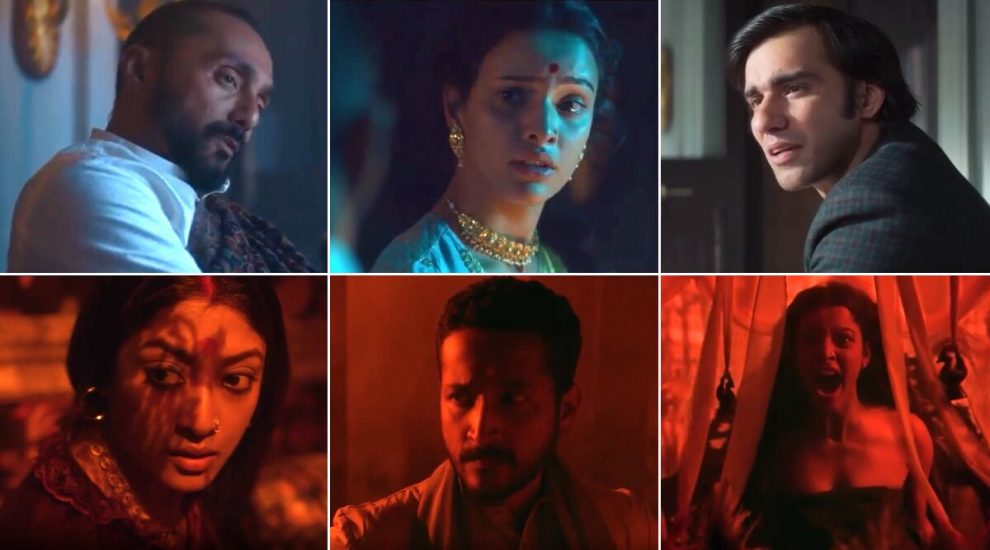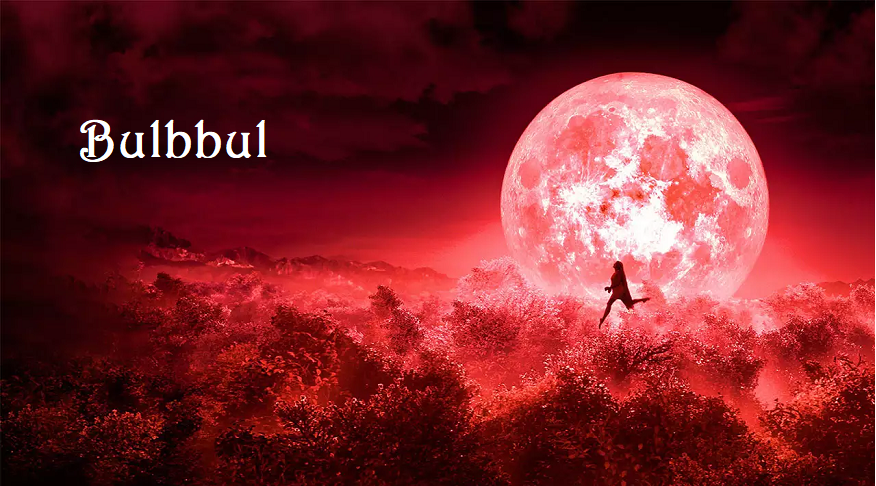Writer and Director – Anvita Dutt
Cast – Tripti Dimri, Rahul Bose, Avinash Tiwary, Parambrata Chattopadhyay, Paoli Dam, Ruchi Mahajan, Varun Paras Buddhadev
Producer – Anushka Sharma
Music – Amit Trivedi
Bulbbul is a fable with a twist – it has witches, chauvinists, domestic violence, child marriage, and complexities in relationships. After watching Satyajit Ray’s “Charulata” and reading books like Rabindranath Tagore’s “Chokher Bali,” and Ashapurna Devi’s “Prothom Protishruti”, it does feel that as women, we can do better than wearing the witches’ mask for vengeance. But, keeping in mind the era in which the story belongs, I give the debutant director, Anvita Dutt, a benefit of the doubt. Furthermore, each actor has been a show stopper, even if they had limited screen presence. The script might not be out of the world, but the scenes perfectly hold on to the viewers’ attention.
The plot gist
The movie begins with the marriage of a little Bengali girl in the year 1881. While the elders welcome the groom’s family and the sound of shehnai plays in the house, the bride, unaware of the excitement and the importance of the day, dressed in her marriage attire, is seen sitting on a mango tree. Later, while being carried to the “mandap” with her face covered in betel leaf, she managed to sneak a glance at a guy as small as her and assumed him as her husband.
The doltish marriage changes her entire life – takes her from rags to riches, adorns her with gold, makes her the “Boro Bou” (The eldest daughter-in-law) of a mansion, and expects her to kill her free-will to become an obedient wife to a man much older to her.
As the story unfolds, so does the complexities of the household that looks more than perfect from outside. It unravels the journey of a child bride (Ruchi Mahajan) and the people in her life – a wealthy landlord, a half-mad brother (both characterized by Rahul Bose), a same-age “dewar” (Avinash Tiwary, Varun Paras Buddhadev plays the child actor’s role) and a crafty wife (Pauli Dam). The story slowly reveals the means a woman, even from the landlord’s family, had to use to save herself and the villagers from the patriarchal exploitations.

The acting department
The dark-sides of these characters are present in most of us – for some, it reflects only when challenged, and for others, it defines them.
As an actor of acclaimed movies like Mr. and Mrs. Iyer and The Japanese Wife, Rahul Bose has carried out the characters of both the brothers, Indranil and Mahendra, effortlessly. While one is educated, apparently knows the difference between right and wrong and has a false male-ego, the other is half-mad and lecherous.
With the coyish gait and sly smile, Pauli Dam does justice to the role of “mejo-bou” (The middle daughter-in-law, younger than Boro Bou) of the house. Though the mansion’s grandeur keeps her pleased, the urge for a man’s warmth lurks her mind and instigates her acts.
Parambrata, another eye-catcher in Bengali cinema, with movies like Baishe Shrabon and Kahaani, owns the space whenever the camera is on him. He plays the role of a doctor, an admirer, and a chivalrous Bangali “babu”.
The Laila from Laila-Majnu (2018), Tripti Dimri, is the head-turner of the movie. She beautifully portrays the gradual progression of a timid village girl into a dominating Boro Bou. How the incidents killed her innocence and made her eyes smile with mockery whenever she spoke to anyone, is something to look out for in the entire movie.

Technical facets of Bulbbul
Coming to the dialogues – though they are not outrageous, they curtly reflect a patriarchal society. Lines like “Badi havelion mein bade raaz hote hai. Chup rahena!” pricks your ears when flawlessly delivered by Dam, after a heinous crime. The background score by Amit Trivedi complements the scenes and is both enchanting and soothing.
Of all things that strike the most is Siddharth Diwan’s cinematography. The red moonlight, the kaashful in the jungle, the thunder strikes, Maa Kali’s mandir, everything invokes fear and anxiety even without the mentioning of a “chudail”.
To Conclude
All in all, the movie Bulbbul follows the lineage of Anushka Sharma’s Clean Slate Films’, produced in the supernatural genre. Though it might not be for the horror movie aficionados, it makes us ponder for a while – “Are women still feared and respected as Demons and Goddesses only?”
When a movie is produced, it has one perspective – we viewers add more perspectives to it. Feel free to share your views and opinions, and if you still haven’t watched it, block 90 minutes from your calendar this weekend for Bulbbul.


Excellent. I don’t have words to express what I felt while reading this.
Bulbul is really a masterpiece ❤️
Thank you for reading our articles and for supporting us.
The finishing was a masterclass and the way how it was displayed creates that interest arising in you and not let your eyes blink.
Netflix is an addiction when it comes to watching content-driven flicks. Bulbul reaches up to the expectations and has the potentials to grab eyeballs.
A nice review blog. Kudos to you’ll
Thanks for reading our review. Netflix indeed has some very gripping content.